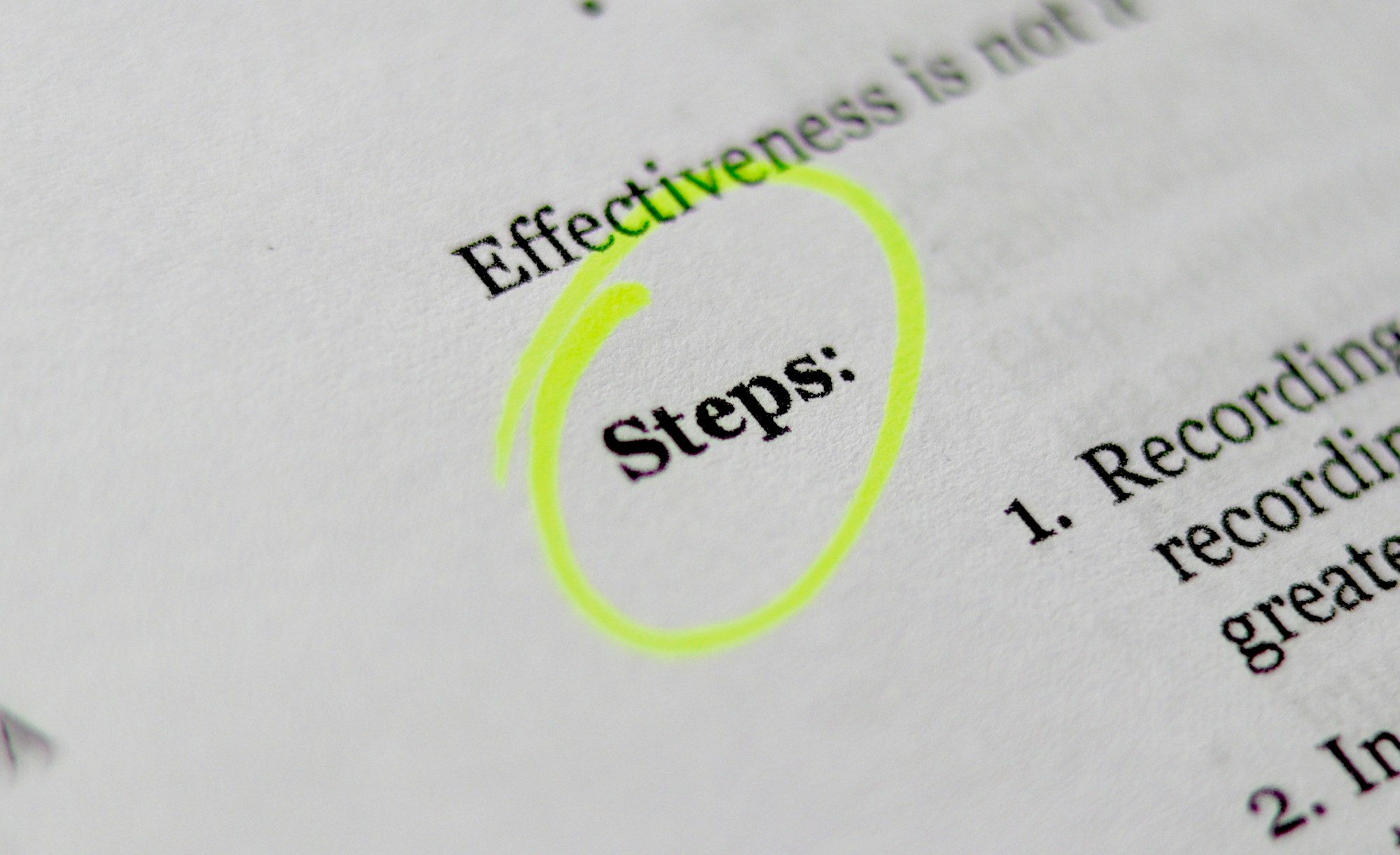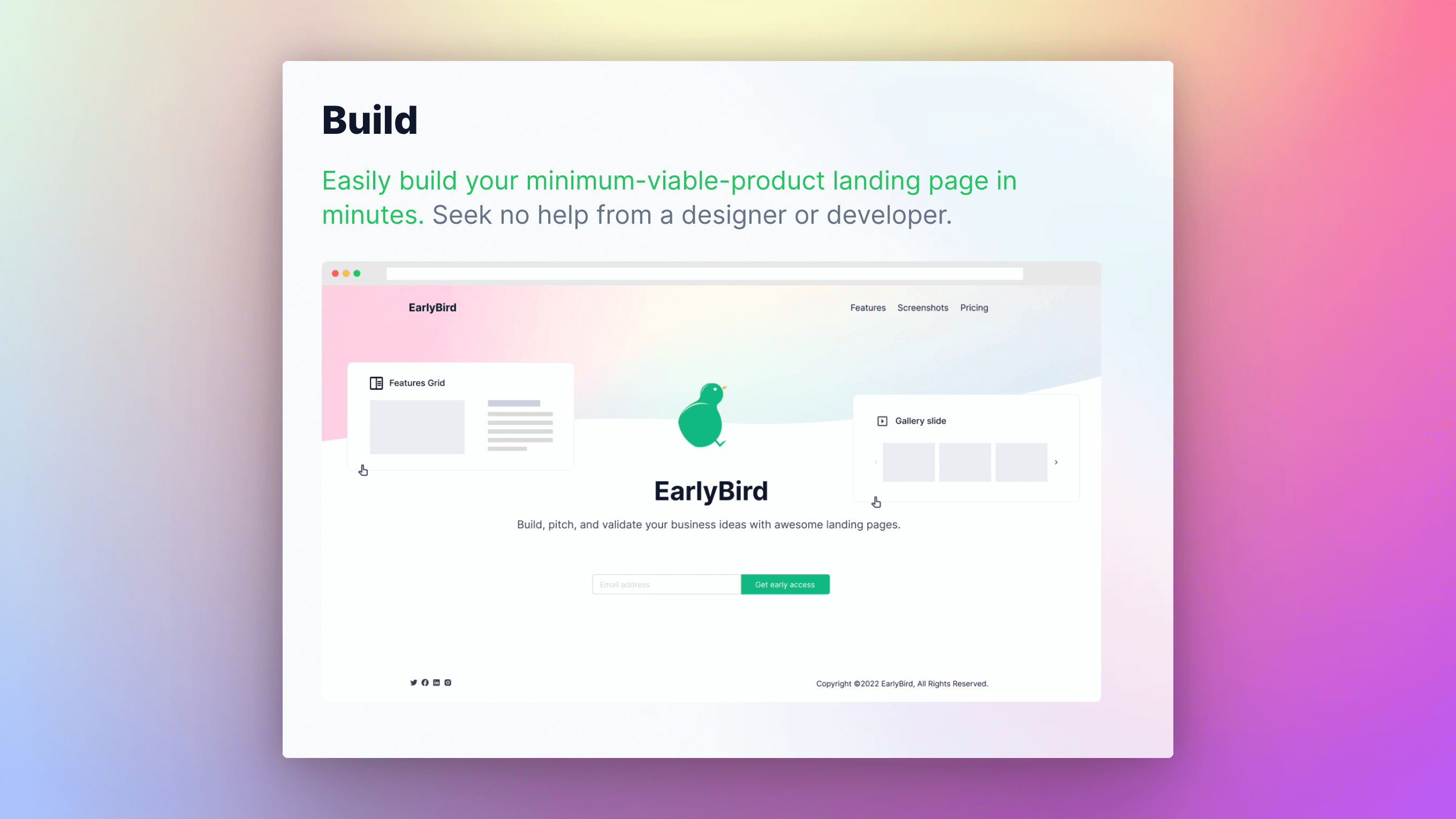Why You Need to Validate Your Idea (+free tool to help you)
Here's why you need to validate your idea before building something. We've included a free tool that might help you as a beginner.

Validating your idea before building something is essential because it allows you to identify potential problems or issues before you invest a lot of time and resources into building it. By validating your idea, you can better understand whether or not your idea is viable and, if it is, what steps you need to take to bring it to fruition.
It is common for entrepreneurs to start with a "Big Idea" or solution and then work backward to figure out what customer problem it solves. This approach can be risky, as it assumes that the developed solution will meet a need or want in the market.
In contrast, it's best to adopt a customer-centric approach to developing new products or businesses that focuses on identifying and solving real customer problems or needs. This approach involves profoundly understanding the customer and their needs and creating a solution that addresses them.
What is idea validation?
Idea validation is the process of testing and evaluating the feasibility and potential success of a new business idea or concept. The goal of idea validation is to determine whether an idea is worth pursuing. It also helps to analyze potential challenges or issues that may arise during its development or implementation.
Why validating an idea is important?

Idea validation is essential for many reasons. Some of the main benefits of validating an idea include the following:
Identifying potential challenges and issues: By testing and evaluating an idea, you can identify any potential challenges or issues that may arise during its development or implementation. Evaluation can help you better understand the risks associated with the idea and plan how to mitigate them.
Saving time and resources: By validating an idea early on, you can save time and resources instead of wasting them on developing a product that is likely to fail to succeed. Time management is essential for startups and small businesses with limited resources.
Improving the chances of success: By validating an idea, you can improve the chances of its success by ensuring that it is based on a solid foundation and addresses a real need or problem in the market. And it can help you to avoid costly mistakes and increase the likelihood of success for your business.
Building confidence in the idea: Validating an idea can also help build confidence in it, both for the people working on it and for potential investors or partners. The process can be vital for early-stage businesses seeking funding or support from others.
The cost of not validating an idea

One example is Google Glass, a wearable computer with an optical head-mounted display released in 2013. Despite the initial hype and buzz surrounding the product, it ultimately failed because of several issues, including high cost, privacy concerns, and a lack of clear value for the user. These issues could have been identified and addressed if they had adequately validated the product before production.
Another example is Juicero, a company that developed and sold a high-tech juicer designed to extract juice from proprietary packs of fruit and vegetables. Despite receiving millions of dollars in funding, the company needed to adequately test the market demand for its product or assess whether it was a viable solution to consumers' problems.
Only make a move after market research.

Market research is essential for validating an idea because it helps you understand the needs and preferences of your target market and the size and potential demand for your product or service. Market research can also help you identify potential competitors and understand their offerings, as well as the potential market share and revenue potential for your product or service.
Seek advice and feedback from experts.

Niche experts deeply understand the topic and can provide valuable insights and perspectives that may take time to be evident to someone with less knowledge or experience.
Positive feedback from experts can provide a sense of confidence and validation for the idea, which can be helpful when seeking support or resources to move the idea forward.
Arrange customer interviews.

Customer interviews gather feedback and insights from potential customers about a product, service, or business idea. Customer interviews are typically conducted one-on-one or in small groups. They involve asking questions about the customer's needs, preferences, and experiences to gain a deeper understanding of their perspective.
There are several benefits to conducting customer interviews as a way to validate an idea:
Feedback: Customer interviews provide an opportunity to gather valuable feedback on the idea and assess whether it meets the needs and expectations of the target market.
Insights: Customer interviews can provide insights into the target market's problems and challenges, which can help refine and improve the idea.
Relationships: Customer interviews can also help to build relationships with potential customers, which can be valuable in the long term,
Measure the efficiency of an idea

Assessing the effectiveness and efficiency of testing and evaluating an idea to determine its viability and potential success. There are several ways to measure the efficiency of idea validation, including:
Time to market: The time it takes to validate an idea and bring it to market can indicate efficiency. A shorter time to market may suggest that the validation process was efficient and that the idea has a higher likelihood of success.
Cost: The cost of validation can be another indicator of efficiency. The process may be efficient if the validation cost is low relative to the potential return on investment.
Accuracy: The accuracy of the validation process can also be an indicator of efficiency. If the validation process accurately predicts the success or failure of an idea, it may be considered efficient.
Feedback: The quality and quantity of feedback obtained during the validation process help to measure efficiency. It may be efficient if the validation process elicits valuable feedback that helps refine and improve the idea.
Determine the feasibility of the business idea

Feasibility refers to the practicality and likelihood of success of an idea or project. When evaluating the feasibility of an idea, it is essential to consider whether the necessary resources and capabilities exist to bring it to fruition. This may include factors such as:
Technical feasibility: Can the idea be implemented using current technology and available resources?
Financial feasibility: Is the idea financially viable? Will the expected returns offset the costs of development and implementation?
Operational feasibility: Can the idea be integrated into the current operations and processes of the organization without causing disruptions or requiring significant changes?
Legal feasibility: Are there any legal or regulatory issues that may impact the feasibility of the idea?
Resource feasibility: Are the necessary resources (e.g., personnel, materials, equipment) available to support the idea's implementation?
Understanding the importance of a landing page

A landing page provides a focused and controlled environment for gathering feedback and insights from potential users. Some specific ways in which a landing page can help validate ideas include:
Measuring interest: A landing page can measure the level of interest in an idea by tracking the number of users who visit the page and the actions they take on the page. The data can provide valuable insights into the demand for the idea.
Gathering feedback: A landing page can collect user feedback through surveys, polls, or other user input forms. The feedback can provide valuable insights into the viability and potential success of the idea.
Testing assumptions: A landing page can test assumptions about the idea by presenting different versions of the page or different calls to action to see which performs best. And it helps refine and improve the idea.
Capturing leads: A landing page can capture leads for a future launch by encouraging users to sign up for updates or to be notified when the product becomes available. The lead capture strategy helps build a base of interested users and assess the potential demand for the idea.
Get down to business when you're confident

Starting a business can be challenging and risky, and it is common for entrepreneurs to invest significant time and resources into their first business without achieving the desired success. Risk is always a key factor for entrepreneurs starting a business with little or no experience, as they may need to understand the challenges and pitfalls they may face clearly.
One way to increase the chances of success and reduce the risk of failure is to start with a clear understanding of the target market and the needs and wants of potential customers. Good research and idea validation can help ensure that the business solves a real problem or need and has a viable market.
Finally, entrepreneurs and indie hackers should know their limitations and seek advice and support from experienced mentors and advisors. Support, mentorship, and guidance can mitigate the risks and challenges of starting a business and increase the chances of success.
Free tool: Use EarlyBird to create a landing page and validate ideas.
At its core, EarlyBird is designed to be a no-code landing page builder for an early bird to validate the business idea without help from a developer or designer.
You can use EarlyBird to validate ideas by gathering customer contact details, feedback, insights, and payments. Using the platform, early-stage entrepreneurs can also create a focused and controlled environment for gathering user feedback and insights about their idea.
With EarlyBird, you can also optimize your pages for SEO and ensure your pages are search-engine friendly. Our SEO features and Analytics integration makes it easy to track your pages' performance and optimize for organic traffic.
